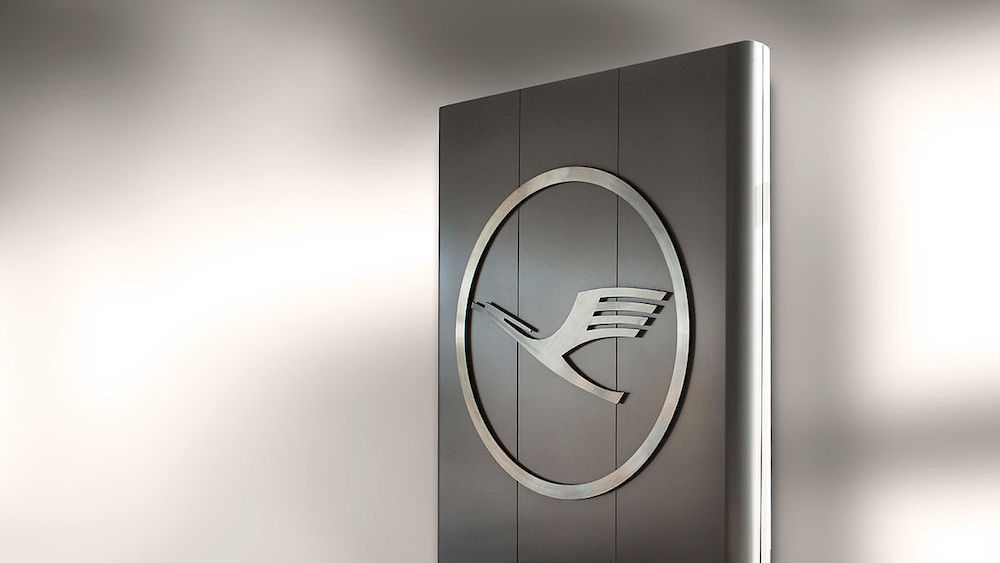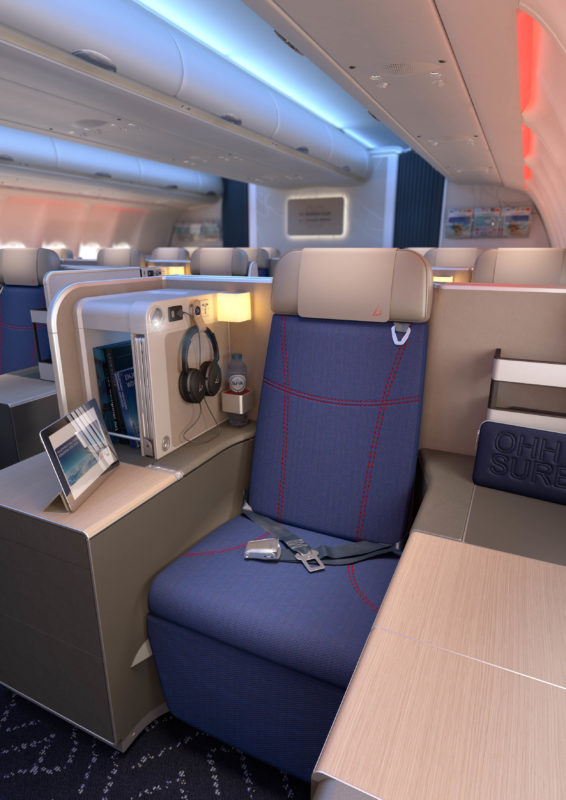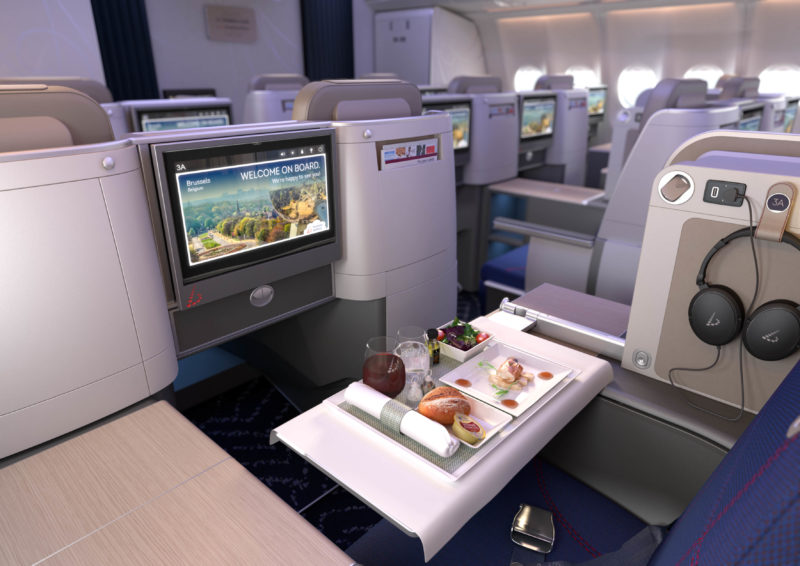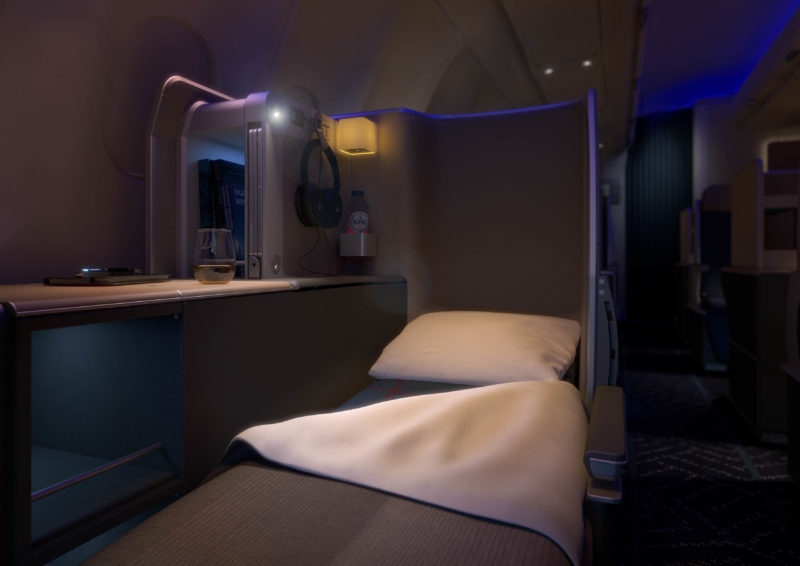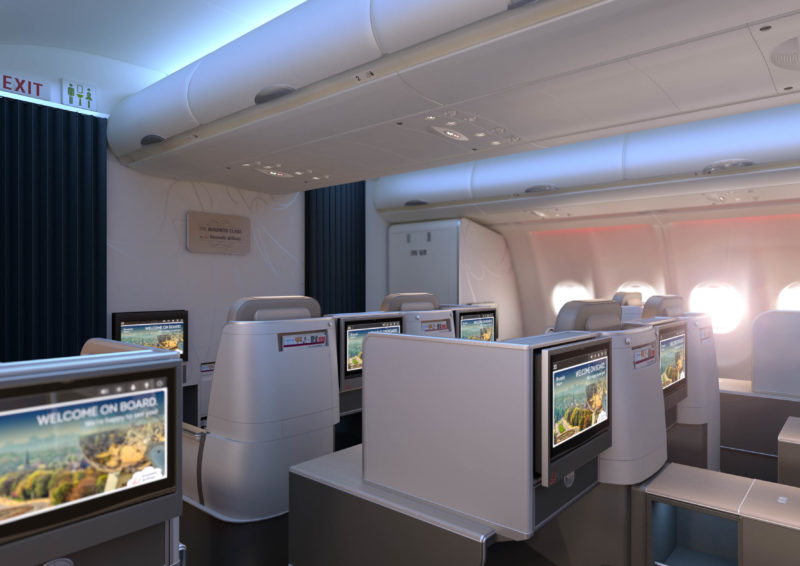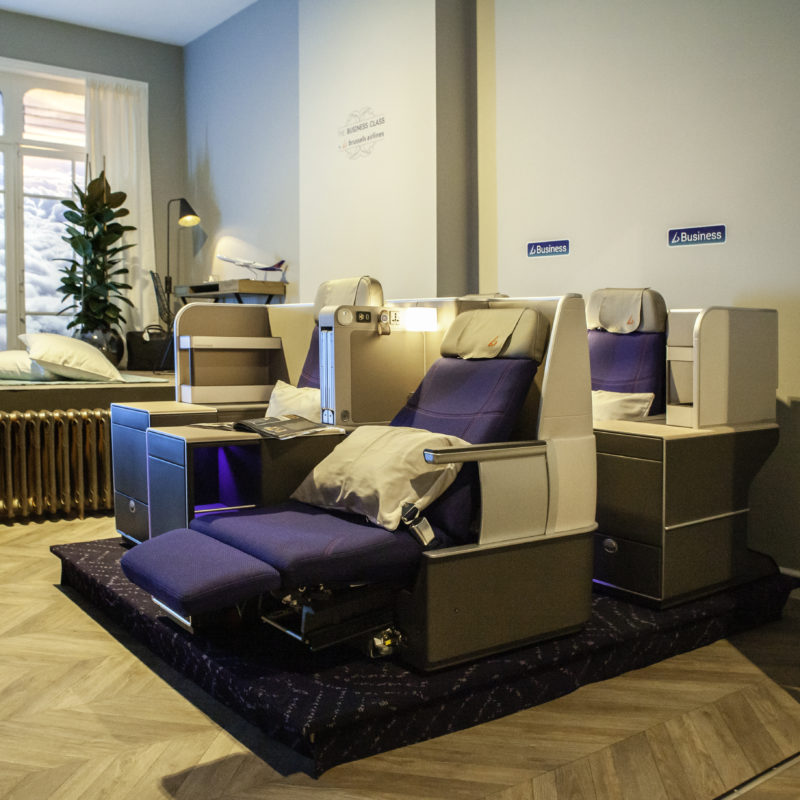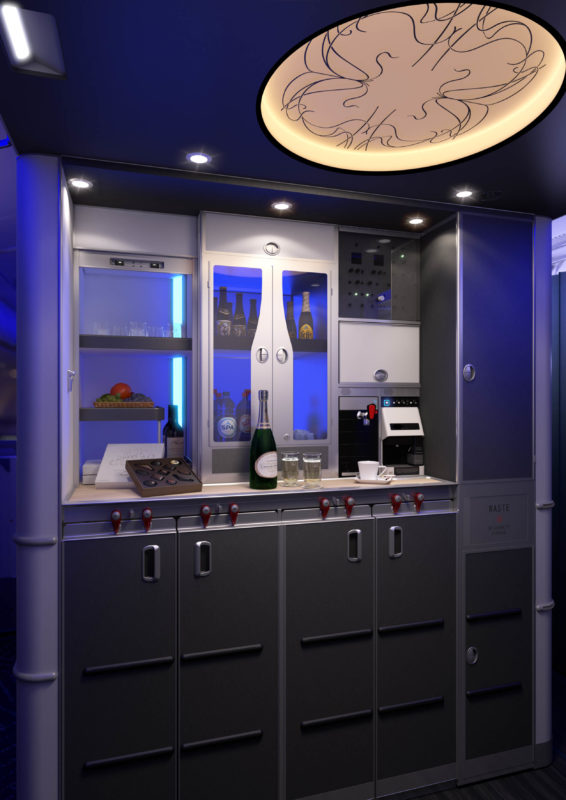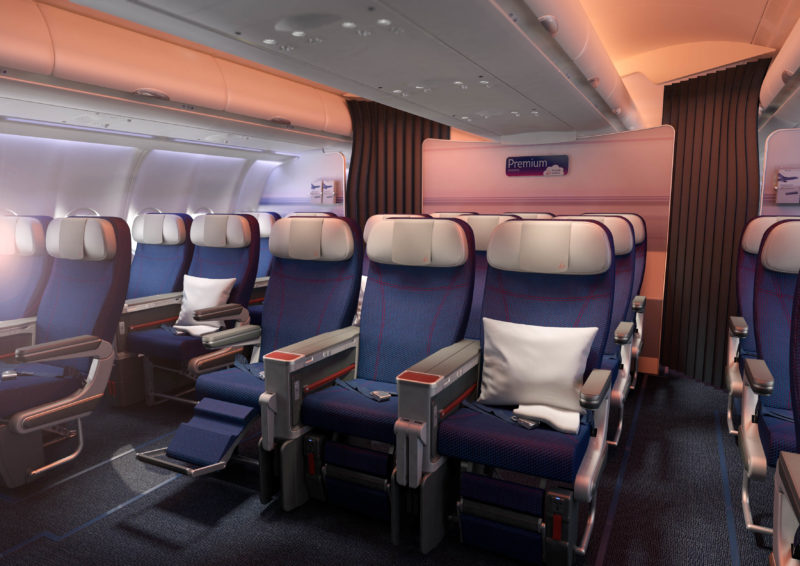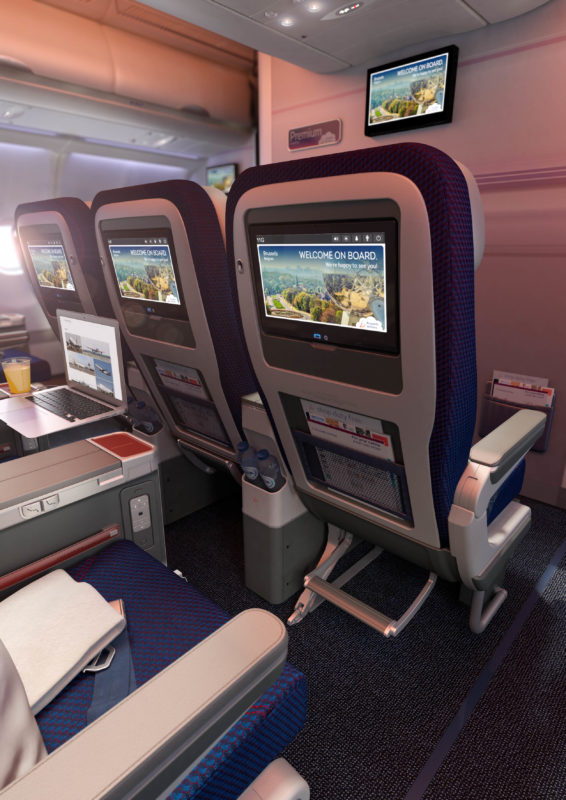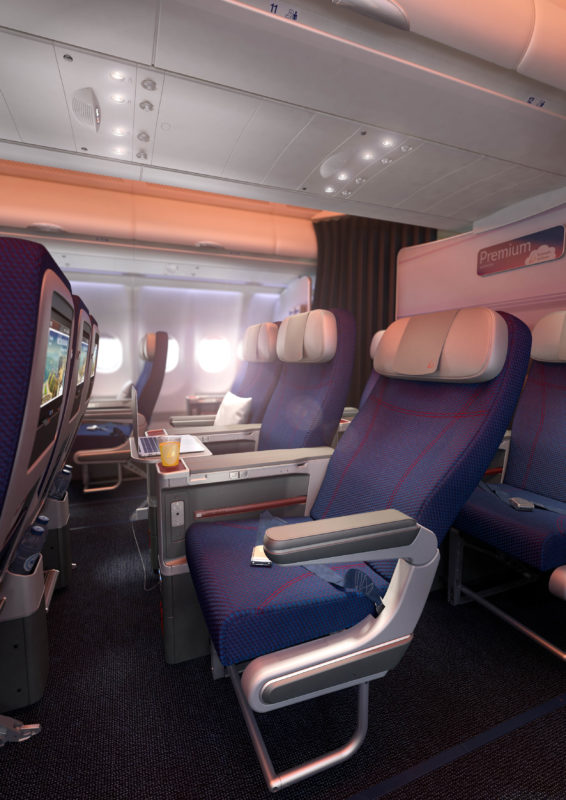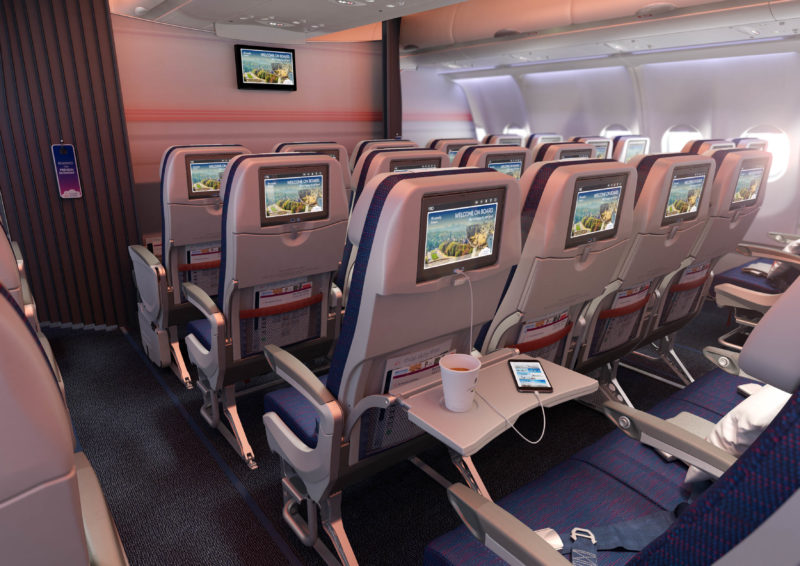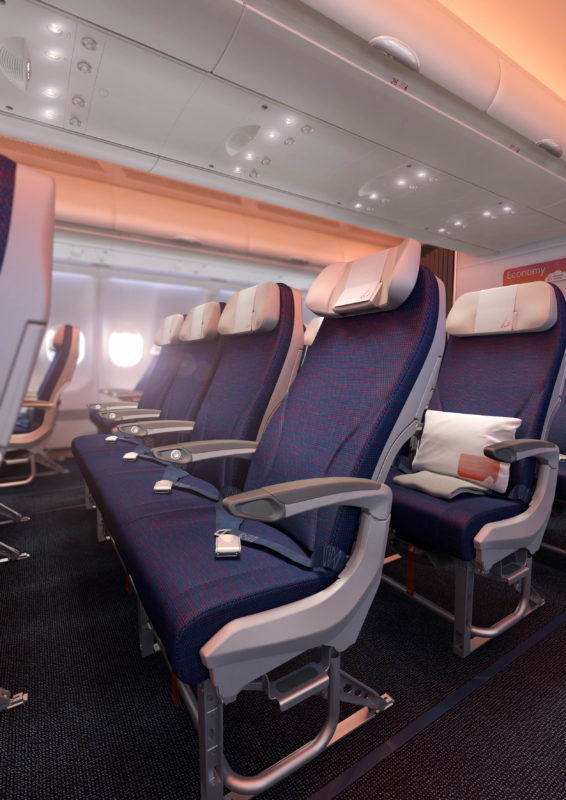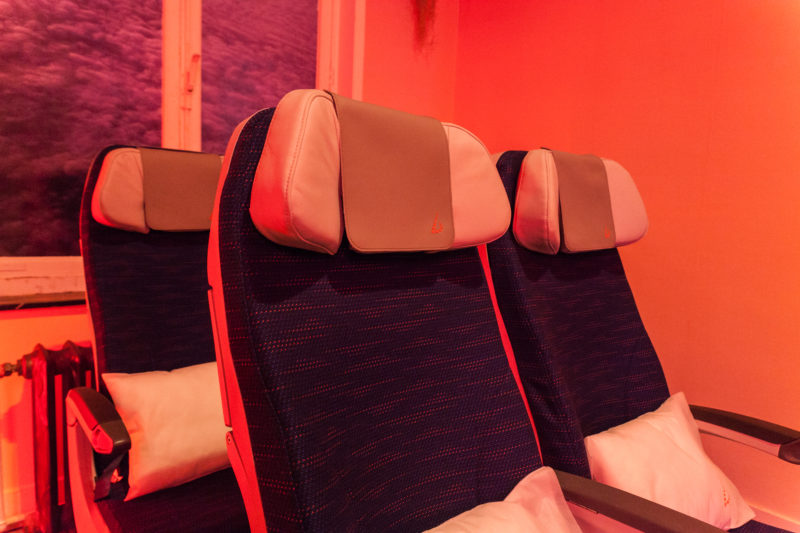Each year, Lufthansa Group has a Capital Markets Day at its Frankfurt headquarters. The event consists of presentations by Senior Management on the Group’s financials, strategy, and operations, with a particular focus on the Group’s airlines.
As one of the largest airline groups in Europe, Lufthansa has subsidiaries including Swiss International Air Lines, Austrian Airlines, Brussels Airlines, Eurowings, and many more. While everyone is interested in its development plan, Lufthansa did give some eye-catching points this time.
New Premium Economy Seat
According to Lufthansa, the revenue of Premium Economy Class per square meter is 6% higher than Business Class and 33% higher than Economy Class, making it the most productive cabin.
Currently, the first generation Premium Economy Seat is fully implemented on Lufthansa and Austrian Airlines fleet.
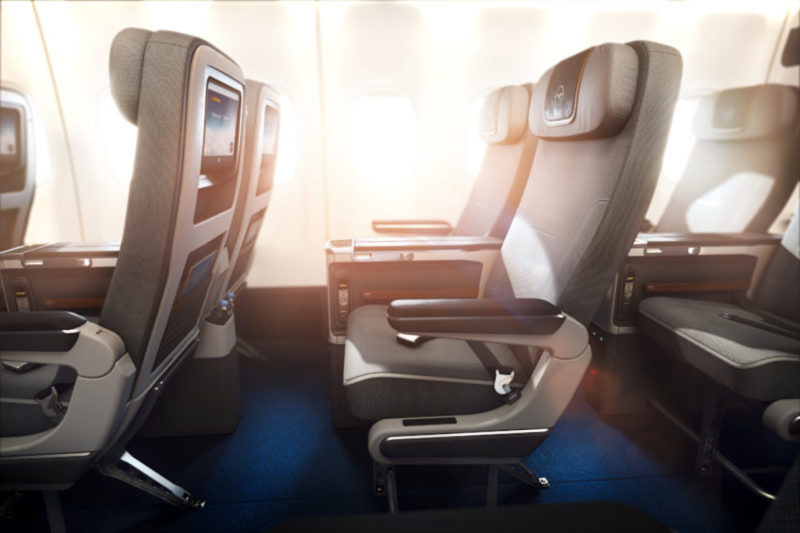
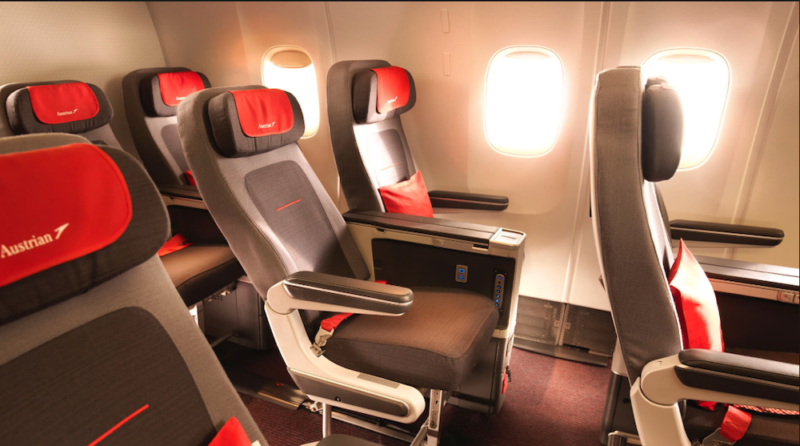
The second generation, which Lufthansa called Enhanced New Premium Economy Class, plans to be introduced in 3Q 2020. First, it will appear on Lufthansa Boeing B777-9 aircrafts, and then Swiss Airbus A340-300s and finally Boeing B7770-300ERs in 2021.
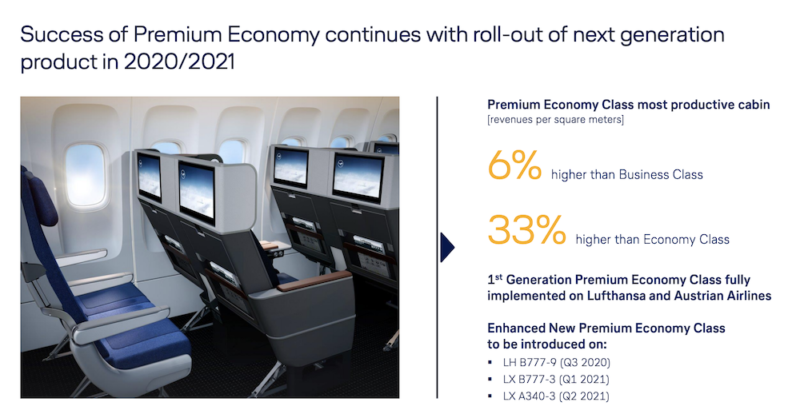
While Lufthansa only showed one picture of this new seat, it looks like what Qantas has on their Boeing B787-9s.
Simplify Wide-Body Fleet
Currently, the whole Lufthansa Group operates 14 wide-body aircraft models. 7 of them are relatively old and not fuel-efficient; those aircraft will retire around 2025. Newly-ordered Boeing B787-9s and Airbus A350s this year will fill in the capacity lost by these aircraft.
At that time, Lufthansa Group wide-body fleet will decrease from 14 aircraft models to 8. A simpler fleet structure and a younger fleet would benefit the airline by reducing a huge portion of its operating cost.
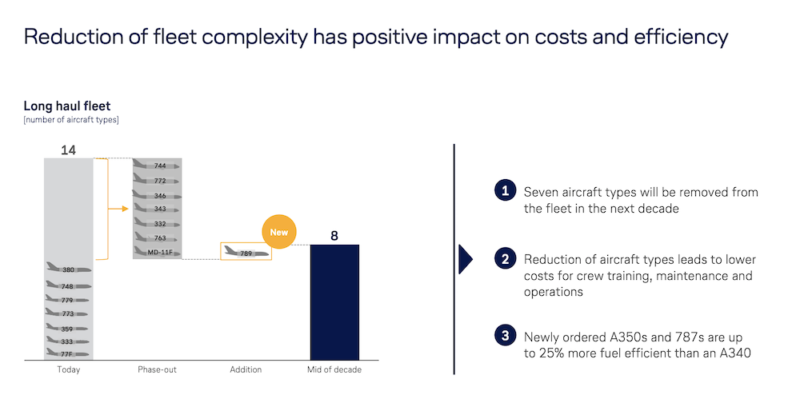
A noticeable point is that Swiss Airbus A340-300s are getting new Premium Economy seats in 2021 but retiring around 2025. So the total time after its refurbishment is only 4 years.
Giving up Long-Haul Low-Cost Carrier
In the last few years, Lufthansa assigned a few wide-body aircraft to Eurowings and decided to merge it with Brussels Airlines. This move was a response to IAG’s LEVEL and Air France – KLM Group’s Joon. The plan was to create a long-haul low-cost carrier.
However, as Joon ceased its operation, Lufthansa Group decided to give up the long-haul low-cost plan as well. Eurowings will refocus on short-haul low-cost flights again and will speed up the emergence with Germanwings.
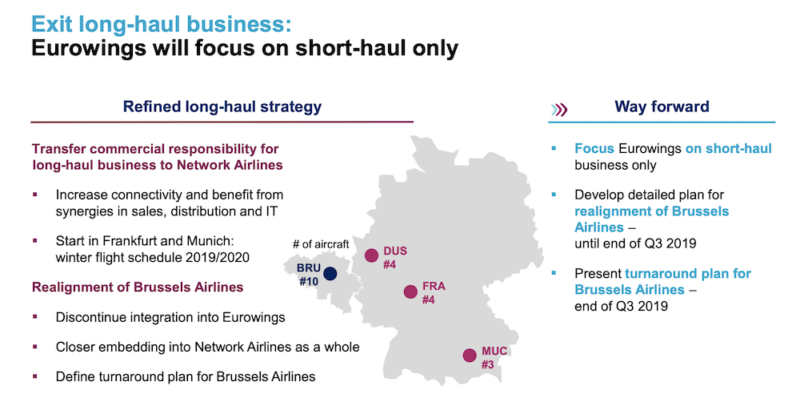
Brussels Airlines New Business Class
As Lufthansa is giving up its long-haul low-cost airline, Brussels Airlines cannot continue operating as an individual brand. The airline already published a re-designed cabin including all three cabin classes.
This relatively small airline will keep focusing on Africa and North America market and will have a closer relationship with the other network airlines including Lufthansa, Swiss, and Austrian.
New Retailing Model
Lufthansa Group is reforming the ticket retailing model for its three network airlines, Lufthansa, Swiss, and Austrian. The new pricing policy will be more flexible and personalized.
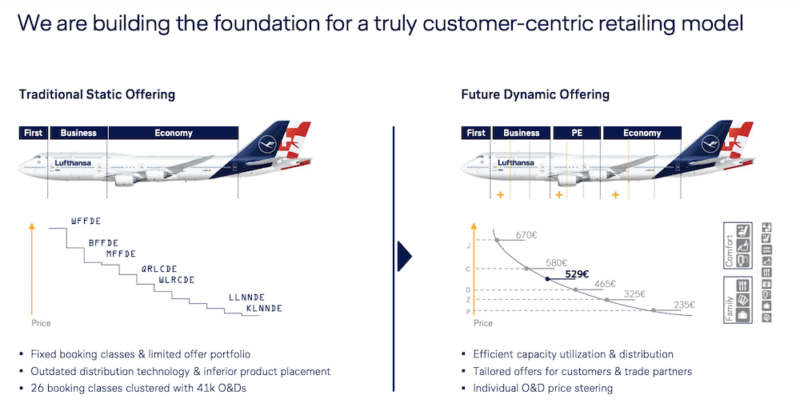
With different traveller types, the airline will offer different options. Each option offers different services and the price will also be different. The hope is to raise overall income this way.
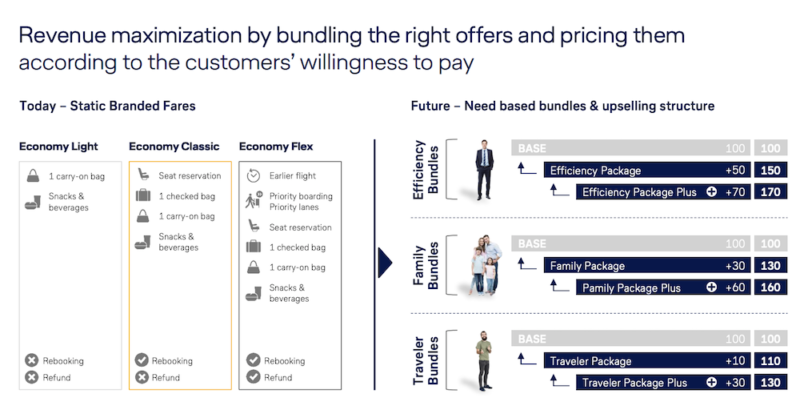
Bottom Line
It is always nice to get a whole view on the future plans of an airline, especially when it is one of the largest in the world. However, for each update, the information is limited, for example, the new Premium Economy Seat. We only have one picture now on the backside of the seat and have no clue as to what exactly the seat is going to look like. Let us keep focusing on more information about the seat to evaluate its comfortableness.
Which news interests you the most? How do you think of the future plan of Lufthansa Group?


